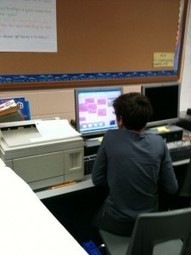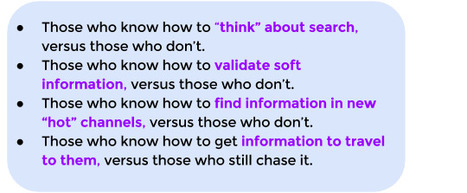While the pages and media found via simple searches may seem unendingly huge at times, what is submerged and largely unseen – often referred to as the invisible web or deep web – is in fact far, far bigger.
Research and publish the best content.
Get Started for FREE
Sign up with Facebook Sign up with X
I don't have a Facebook or a X account
Already have an account: Login
Tech tools that assist all students to be independent learners & teachers to become better teachers
Curated by
Beth Dichter
 Your new post is loading... Your new post is loading...
 Your new post is loading... Your new post is loading...
|

Pamela Perry King's curator insight,
October 21, 2013 12:09 PM
The Big Six taught me a lot on how we assume kids can skim and scan. We need to take more time to show them how to search. 
johanna krijnsen's curator insight,
December 4, 2013 2:07 PM
do your students know how to search, find and curate information? 
Cindy Gerken Butler's curator insight,
November 11, 2014 2:34 PM
We are a 1:1 school and we have several students who could learn a lot in regards to searching for content on the internet. |












Many students are not aware that there is an "invisible web" that may be searched, one that is not quite so easy to find but has more information than Google provides (which tends to look at the "Surface Web"). According to this post Google has indexed "roughly 200 terabytes" while the size of the Internet is estimated at "5 million terabytes" of information.
The post provides a look at what is not found through Google (or other common search engines) and then shares:
* A list of Open Access Journal Databases (with over 10 databases with descriptions)
* A list of Invisible Search Engines. Quoting from the post "The search engines that deliver results from the invisible web are distinctly different. Narrower in scope, these deep web engines tend to access only a single type of data…deep web searches tend to be more thoughtful in their initial query requirements." Ten search engines are listed and there is a short description for each.
* A list of subject-specific databases in the following areas
- Art & Design
- Business
- Legal & Social Services
- Science & Technology
- Healthcare
Although this post is geared to students in college there are resources that may be used by students in middle or high school provided, and as teachers it is important for us to learn more about this "invisible web" and to share it with our students.